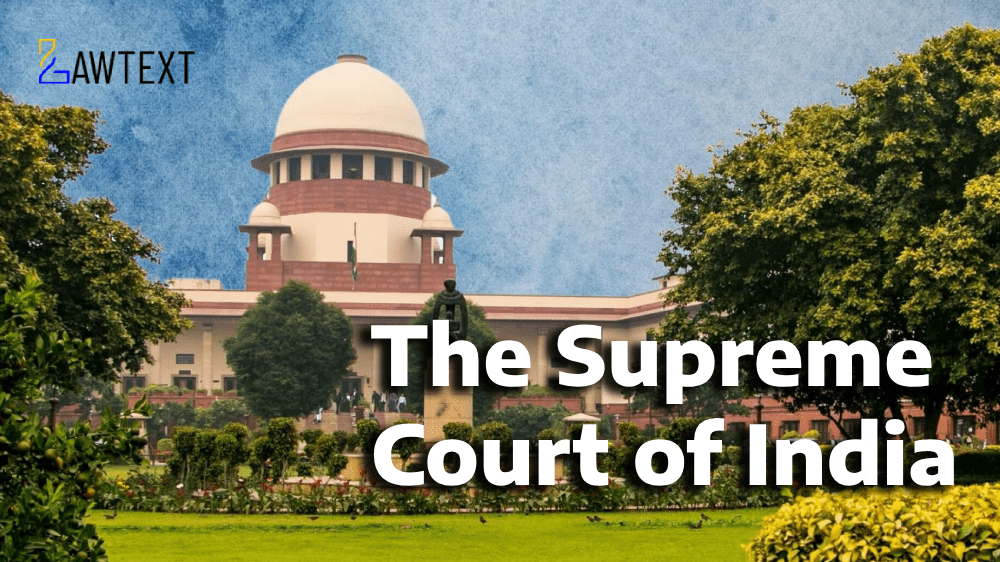

The Supreme Court upheld the decision of the High Court discharging the respondent (Accused No. 5) from charges under Sections 120B of the Indian Penal Code (IPC) and Sections 7, 12, and 13(2) read with Section 13(1)(d) of the Prevention of Corruption Act, 1988. The Court held that the material on record did not establish a prima facie case of conspiracy or bribery against the respondent.
The respondent, a Managing Director, was implicated in a bribery and conspiracy case involving payments made to customs officials for clearing refunds of the company's clients. However, the Supreme Court ruled in favor of the respondent, emphasizing that the charge sheet did not sufficiently establish his direct involvement in the alleged conspiracy.
Background of the Case:
The respondent and five others were charged under IPC Section 120B and various sections of the Prevention of Corruption Act, 1988, related to conspiracy and bribery (para 1). The High Court discharged the respondent, and the prosecution appealed to the Supreme Court (para 1).
Key Allegations:
The charge sheet alleged that bribes were paid by company officials to customs officers to expedite refund claims. Accused No. 1, Mehul Jhaveri, acted on behalf of the company, allegedly paying Rs. 58,000/- to a customs officer (para 2-3).
Further Bribe Payments:
A second set of bribes included Rs. 3,50,000/- to an Assistant Commissioner, Anand Singh Mall, through company employees (para 4-5). Another Rs. 1,50,000/- was also allegedly paid to Mall (para 5).
Lower Court Proceedings:
The Special Judge rejected the respondent's discharge application in 2016. However, the High Court allowed it in 2017, and the Supreme Court remanded the case for further analysis (para 6).
Prosecution's Argument:
The prosecution argued that a prima facie case of conspiracy was established and criticized the High Court for not giving due weight to evidence like intercepted conversations (para 7).
Defense's Argument:
The defense argued that there was no direct evidence of the respondent's involvement, pointing out that the notebook entries referred to another accused, Dushyant Mulani, not the respondent (para 8).
Supreme Court's Observations:
Upon reviewing the charge sheet, the Supreme Court found no direct allegations linking the respondent to the bribes, as other company officials were responsible for the transactions (para 9).
Lack of Evidence Against the Respondent:
No telephonic conversations or documentary evidence connected the respondent to the bribes (para 10). References to "DM" in the company’s records were found to relate to Dushyant Mulani, not the respondent (para 11-12).
Material Review by the High Court:
The High Court had thoroughly examined the evidence and correctly found no basis to charge the respondent based on the material in the charge sheet (para 13-14).
Conclusion:
The Supreme Court concluded that the respondent's involvement in the conspiracy was not established and upheld the High Court’s order discharging the respondent (para 15-16).
The Supreme Court ruled that, at the stage of framing charges, only a prima facie case needs to be established. The material in the charge sheet did not establish a direct connection between the respondent and the alleged bribes, as there was no corroborative evidence to link him with the conspiracy or payments.
Criminal Law, Corruption, Conspiracy
Prevention of Corruption Act, Criminal Conspiracy, Discharge, High Court, Supreme Court, IPC, Bribery
Citation: 2024 LawText (SC) (9) 207
Case Number: CRIMINAL APPEAL NO. 3863 OF 2024 (Arising out of Special Leave Petition (Crl.) No.1273 of 2021)
Date of Decision: 2024-09-20
Case Title: CENTRAL BUREAU OF INVESTIGATION VERSUS DILIP MULANI & ANR.
Before Judge: (Abhay S. Oka J. , Ujjal Bhuyan J.)
Appellant: CENTRAL BUREAU OF INVESTIGATION
Respondent: DILIP MULANI & ANR.